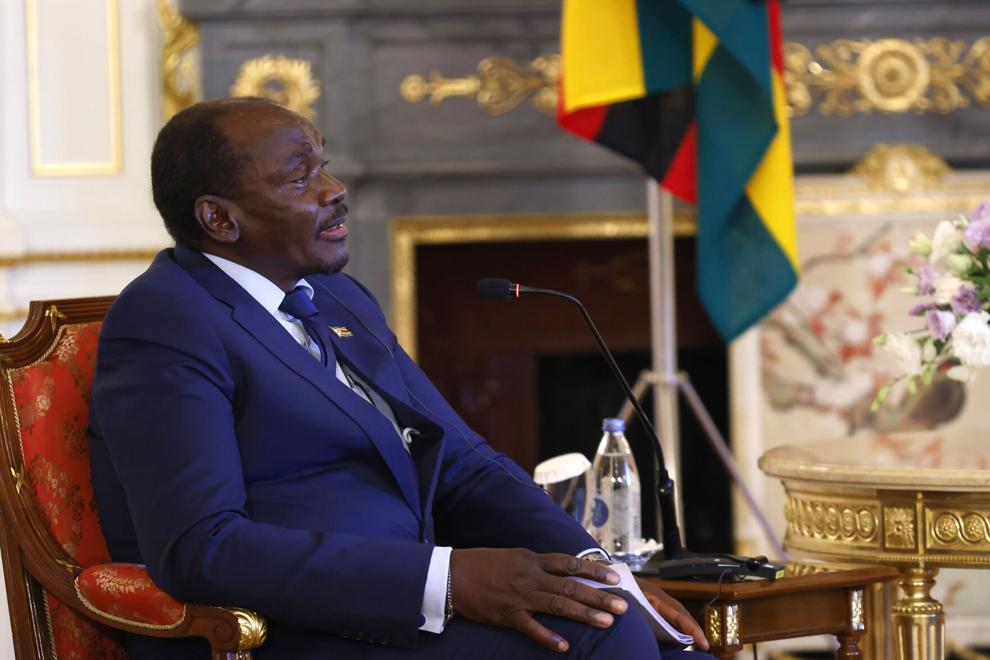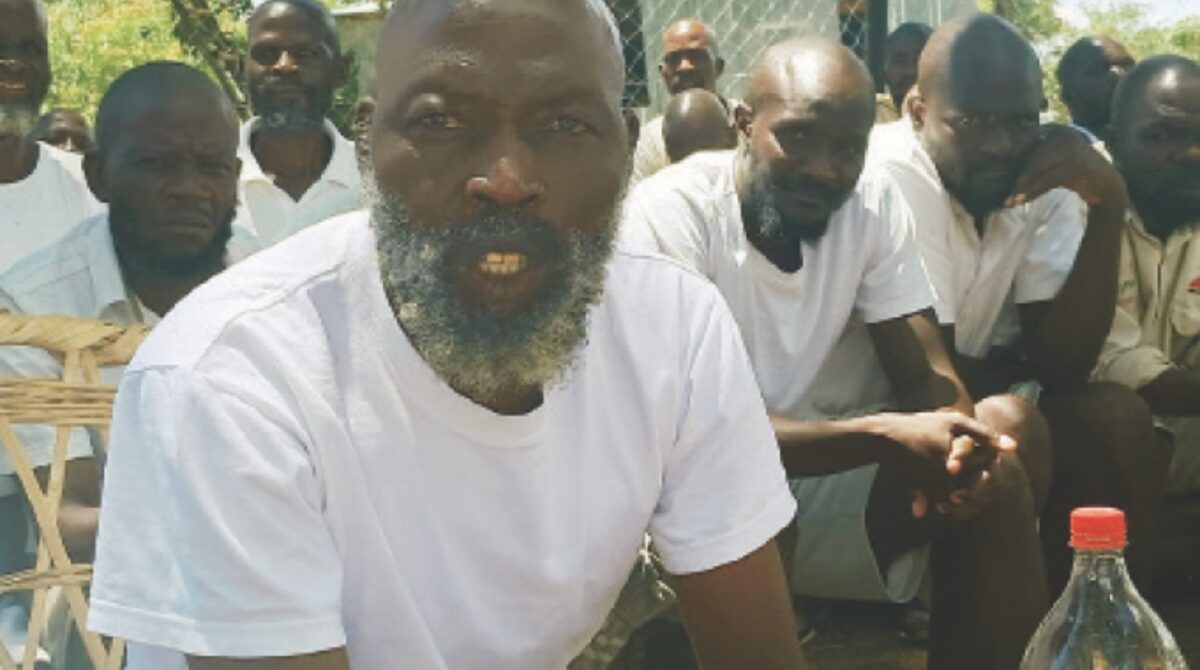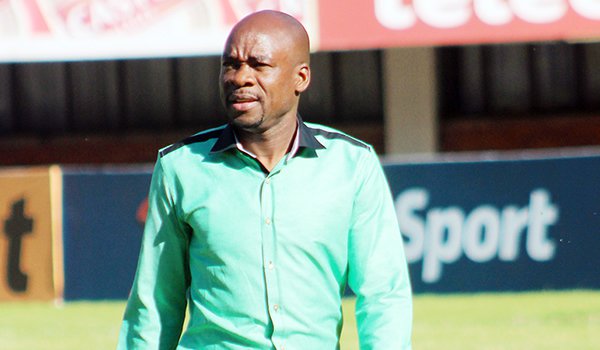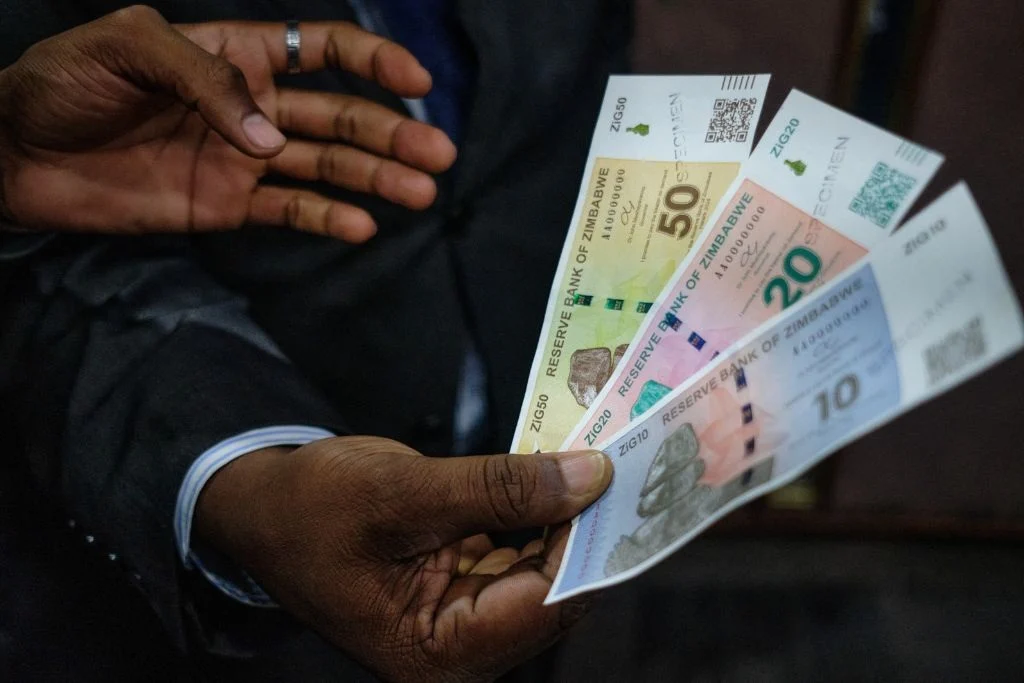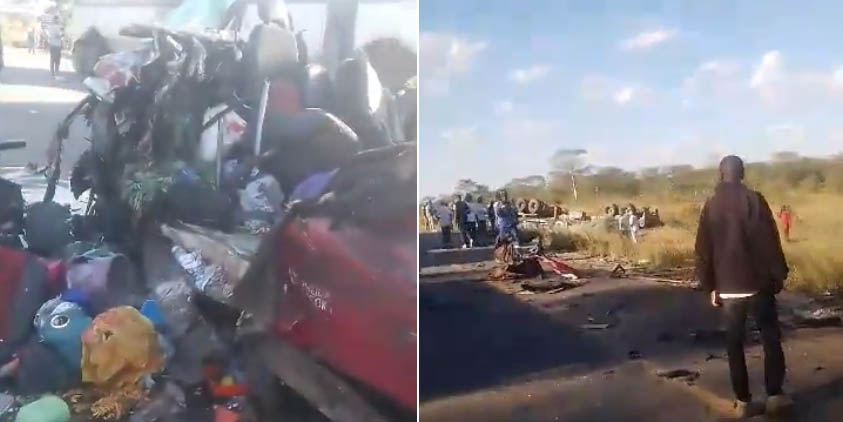HARARE – Zanu PF second secretary Kembo Mohadi is drawing fuel from the government for partisan political programmes, a leaked document shows.
Mohadi has crisscrossed the country in recent months meeting traditional chiefs and village heads and imploring them to mobilise voters for Zanu PF ahead of general elections next year.
A leaked government document reveals that Mohadi, who resigned in shame as the country’s vice president following a sex scandal in March 2020, continues to draw resources from the government.
Felix Chikovo, the acting chief director for Traditional Leaders Support Services in the ministry of local government wrote a memo dated September 28 directing the “acting director administration” to process fuel coupons for “pending department activities.”
The activities include the installation of three chiefs – Nemanwa, Nemashakwe and Benhura – as well as a “selection meeting”, believed to be for Chief Chirumhanzu. The four events were allocated 6,200 litres of fuel.
A curious entry in the memo is for “VP Mohadi Tour of Mashonaland Central 4-12 October 2022” for which 1,960 litres of fuel was allocated.
The memo is the most damning proof of Zanu PF conflating the state and the party, the main opposition Citizens Coalition for Change said.
“Why are citizens paying for a Zanu PF official’s party duties? Why must the taxpayer foot the bill for party activities? Conflating party and state is unconstitutional. This is grand scale looting,” CCC spokesperson Fadzayi Mahere said.
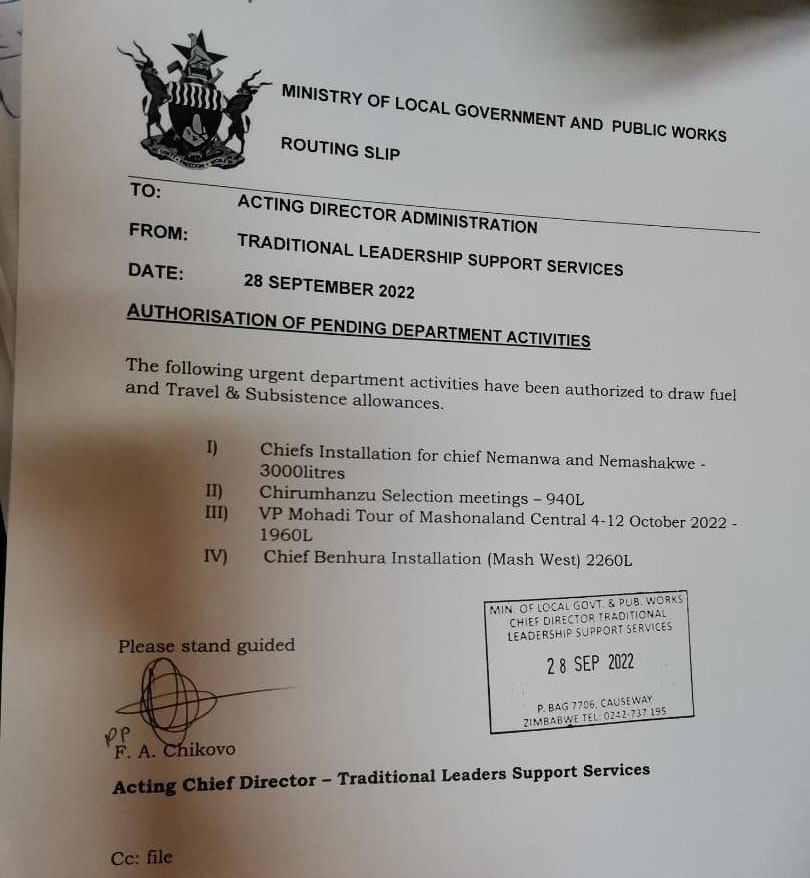
George Charamba, the presidency spokesman, said: “There’s no story. Zanu PF is a key stakeholder at installation of chiefs. Why would the party – an invitee – fuel itself to a function of the local government ministry?”
Charamba did not explain how Zanu PF is a stakeholder in the installation of chiefs, and not the opposition. He also appeared to confuse Mohadi’s countrywide meetings with traditional leaders, at Zanu PF’s behest, for the “installation of chiefs” – itself still no justification for using state resources to finance his movement.
At a meeting in Gokwe South in March, Mohadi gathered traditional leaders – who are required to be apolitical by the constitution – and told them: “Please, we are asking you our chiefs, headmen and village heads to develop your organisation (Zanu PF). Zanu PF is your party, did you know that? Know it from today that Zanu PF is your party. We want to fight this war against the West fronted opposition.
“We want you to increase the number of people to vote Zanu PF. Did you hear we want five million votes next year? We want them to vote for Zanu PF and through you, we know we will achieve that.”
After his resignation, Mohadi withdrew to the party’s headquarters where he now works fulltime. He was reportedly allowed to keep most of his security detail, and vehicles – maintaining the same benefits he enjoyed as the country’s vice president.
